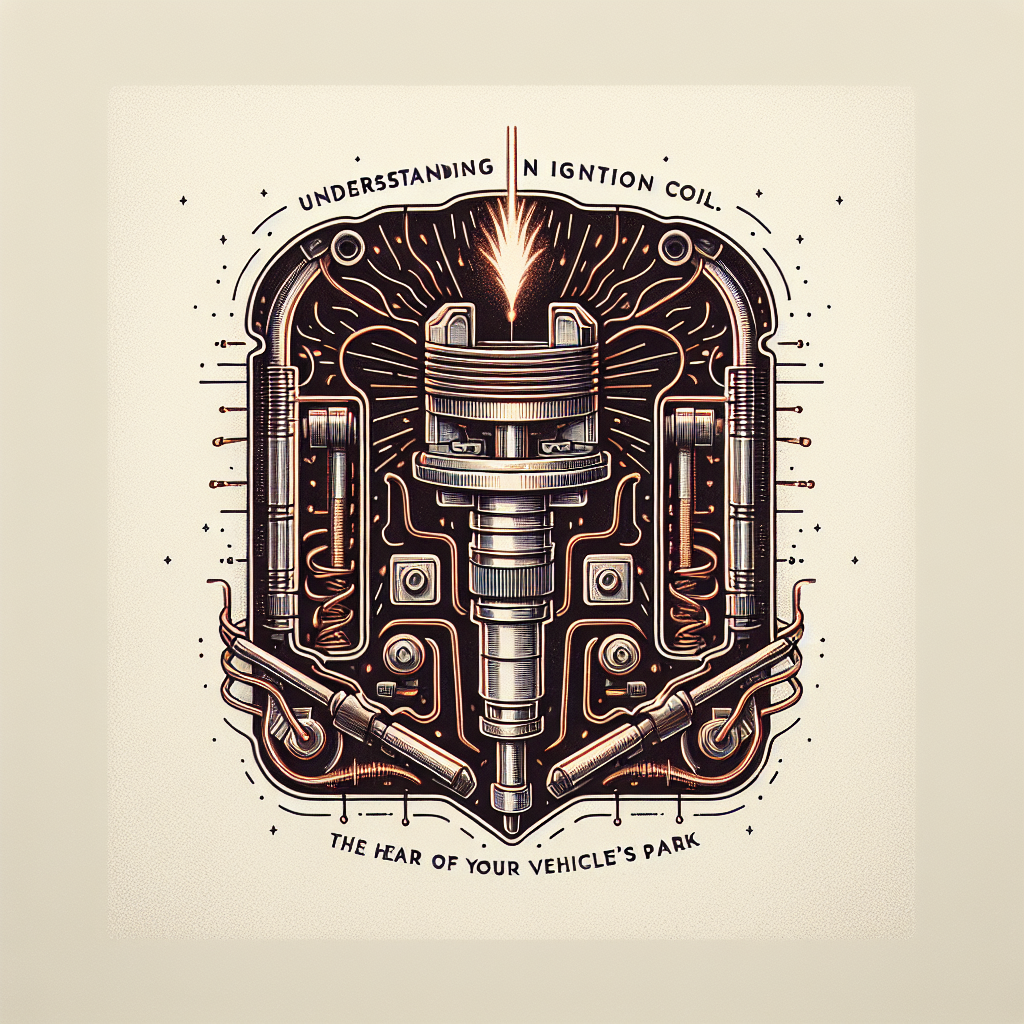An ignition coil, often referred to as the heart of your vehicle’s spark, plays a pivotal role in your car’s engine functionality. Despite their small size, these components are crucial for generating the high voltage needed to ignite the fuel within the engine, setting the whole combustion process in motion.
Ignition coils function by transforming the vehicle’s low battery voltage into thousands of volts. This high voltage is necessary to create an electric spark in the spark plugs, which in turn ignites the air-fuel mixture in the engine cylinders. Without a properly functioning ignition coil, your vehicle might struggle to start or may even exhibit symptoms of a misfiring engine, poor fuel efficiency, and increased exhaust emissions.
Types of Ignition Coils
Understanding the type of ignition coil your vehicle requires is important. There are several types available, each tailored to different kinds of engines and ignition systems:
-
Coil-On-Plug (COP): These coils are mounted directly on top of each spark plug. They eliminate the need for spark plug wires, making them highly efficient. This type is commonly found in modern cars due to its design that helps in accurate timing of the spark.
-
Distributor-Based Ignition Coils: In older vehicles, the ignition coil connects to a distributor. This distributor then routes the spark to the corresponding spark plug via heavy-duty wires. Although effective, this system is more prone to wear and tear.
- Coil Pack: Various ignition coils grouped together as a single unit form a coil pack. These are often used in vehicles with electronically controlled ignition systems. Coil packs are reliable and easy to replace.
Symptoms of a Failing Ignition Coil
Identifying a failing ignition coil early can save you from costly repairs. Here are some common symptoms to watch for:
-
Engine misfires: Frequent misfires can signal a failing ignition coil. Misfires occur when the spark necessary to ignite the fuel mixture is not produced.
-
Decreased fuel efficiency: A faulty coil can cause incomplete combustion, leading to fuel wastage.
-
Trouble starting: Difficulty in starting the engine, especially in cold weather, can be a clear indicator of ignition coil issues.
- Check Engine Light: This light can turn on for a variety of reasons, one of which could be a failing ignition coil. Connect a diagnostic tool to read the error code or visit a professional for assistance.
Maintenance and Replacement
Regular maintenance of your vehicle’s ignition system can prolong the lifespan of the ignition coil. Clean any dirt and debris around the coil to prevent damage. It’s also wise to replace spark plugs and ignition coils simultaneously, as wear in one can impact the other.
If a replacement is necessary, ensure to use a high-quality ignition coil to maintain optimal performance. You can find a wide variety of ignition coils that match different vehicle specifications. One reputable source to consider is the PatrickDerekFletcher.com Auto Parts Store, which offers a vast selection of auto parts, including ignition coils for various models.
Final Thoughts
The ignition coil is undeniably the heart of your vehicle’s spark. Proper maintenance and timely replacement can ensure your engine runs smoothly and efficiently. Understanding this small component can help you make better decisions for your vehicle’s upkeep and avoid unexpected breakdowns. Always opt for quality parts and consult professional advice when in doubt.

